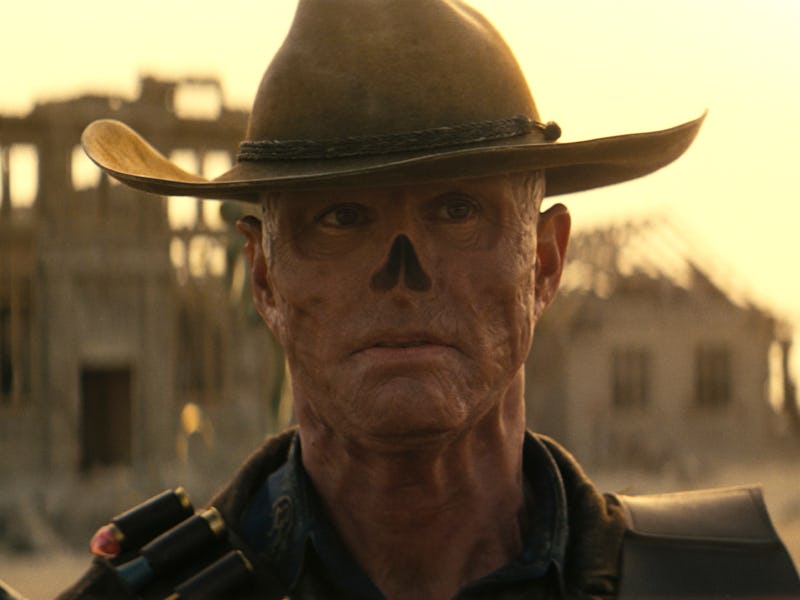Fallout Just Confirmed Its Big Video Game Villain Will Return
The House always wins.

Fallout is venturing into uncharted territory. Season 1 introduced fans to Lucy MacLean and Cooper Howard (aka the Ghoul), managing to tell an entirely new story within the existing framework of Fallout without directly adapting any specific chapter of the iconic game franchise. But that all changed in the last moments of Season 1 when the camera panned over the region where Hank MacLean was heading: New Vegas, the setting of the aptly named game Fallout: New Vegas.
Now, along with that setting, we have confirmation that another big game cameo will return for Season 2, and it could change everything for the show — and what fans of the game will think of it.
Robert House in Fallout Season 1.
One of the most exciting parts of Fallout Season 1 was the surprise appearance of Robert House in the flashbacks to the pre-apocalypse era. House, the CEO of RobCo, is one of the major villains of Fallout: New Vegas, and according to Variety, will return for more episodes in Season 2.
However, there’s a bit of a snag in the hopes that Season 2 of Fallout will adapt the story of New Vegas. The show is canonically set after the events of the game, as evidenced by the NCR’s appearance. It also seems like the series follows the ending where Mr. House wins, seeing as the NCR is seeking the cold fusion power source, not the Hoover Dam, like in the game.
Robert House’s true post-apocalyptic form in Fallout: New Vegas.
So how could House pose a threat in Season 2? He could appear only in flashbacks like we’ve seen so far, as Lucy and the Ghoul deal with his legacy, but it’s likely we’ll see him in the flesh. Much like the Ghoul, House was able to survive since before the bombs dropped, though it’s safe to say he will have aged quite a bit worse than Walton Goggins’ irradiated, noseless bounty hunter.
While the major villain of Fallout Season 1 wasn’t even apparent until almost too late, it looks like the Big Bad of Season 2 is the only thing we know about the story. Hopefully, the timeline differences mean the story will vary, because Fallout has already proven it can do what not many video game adaptations can: tell a new story that feels part of the greater narrative.